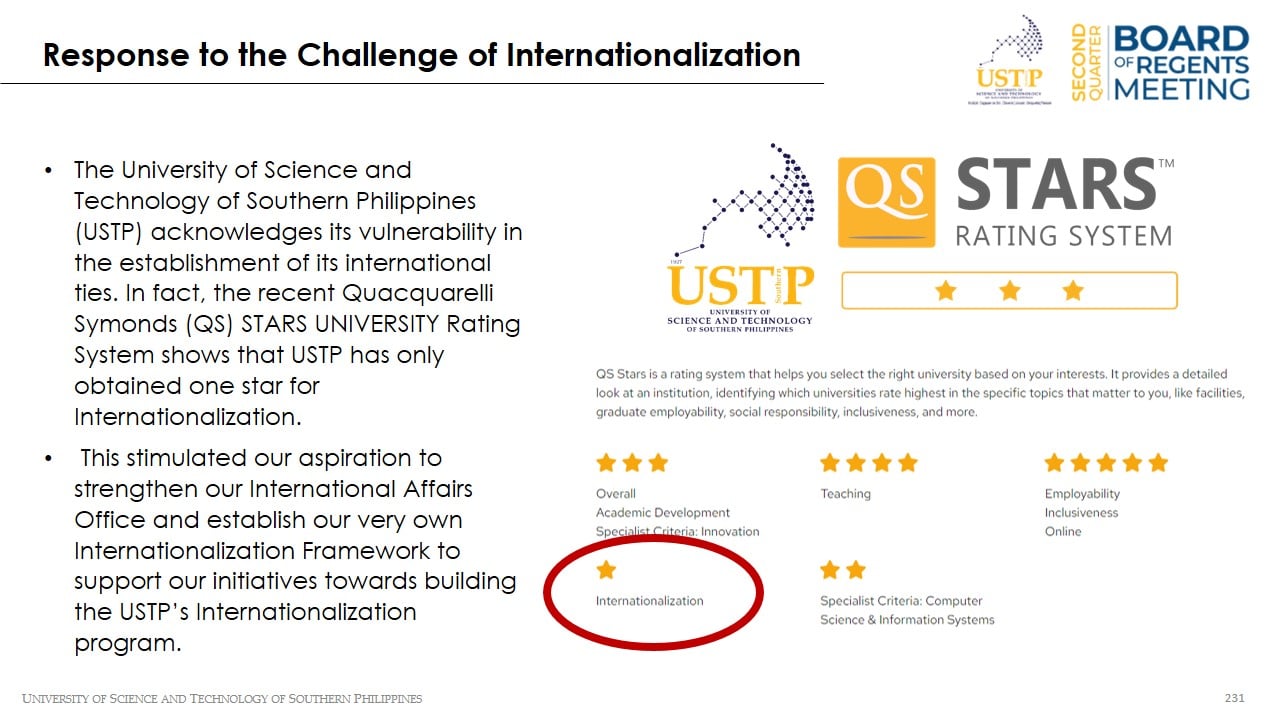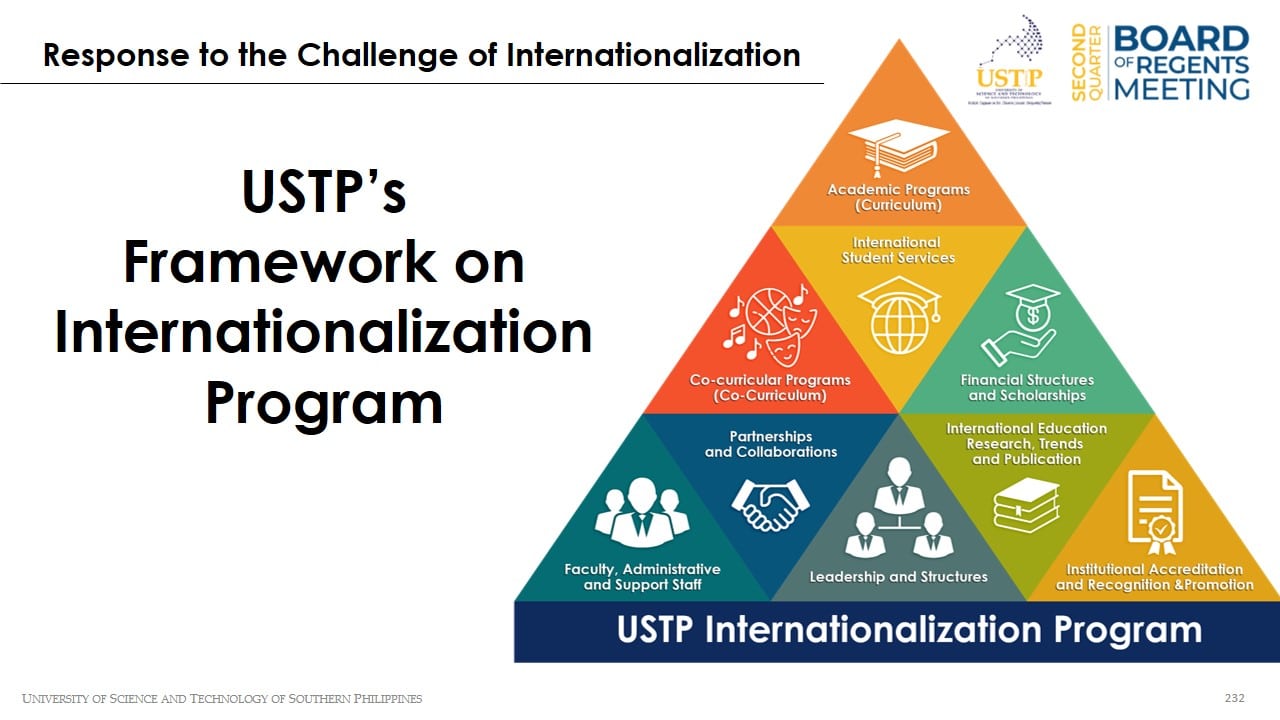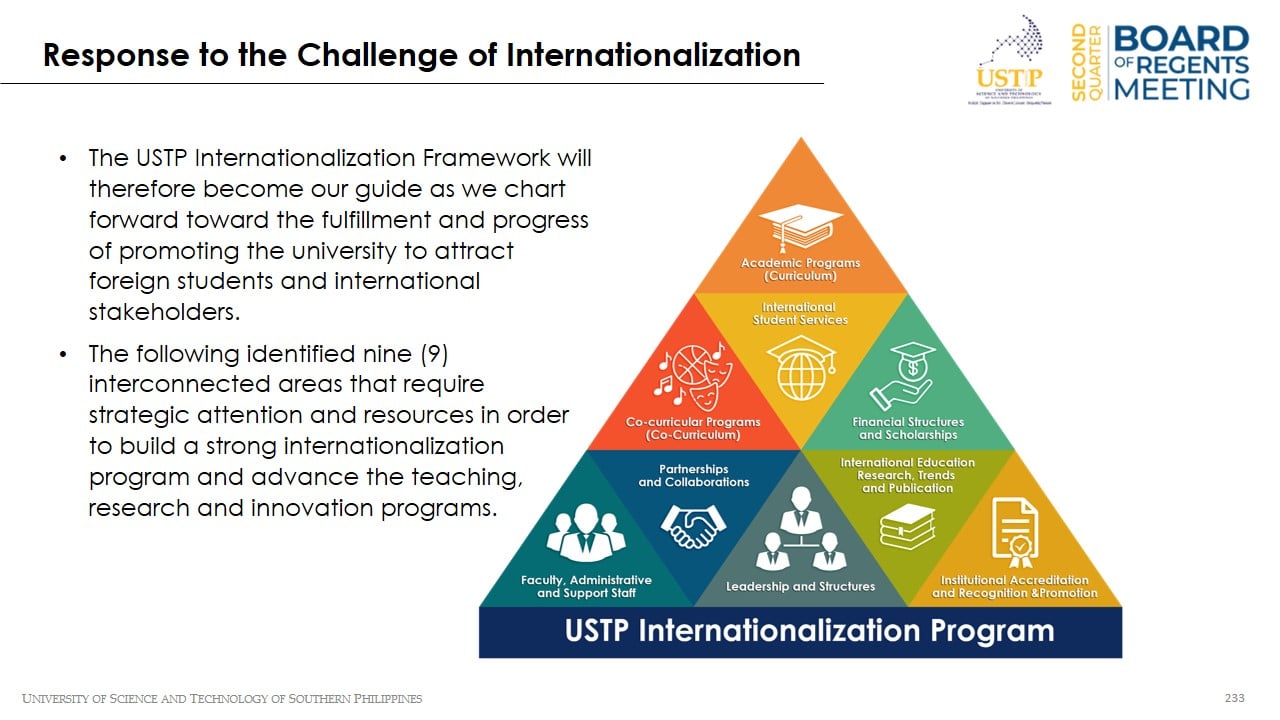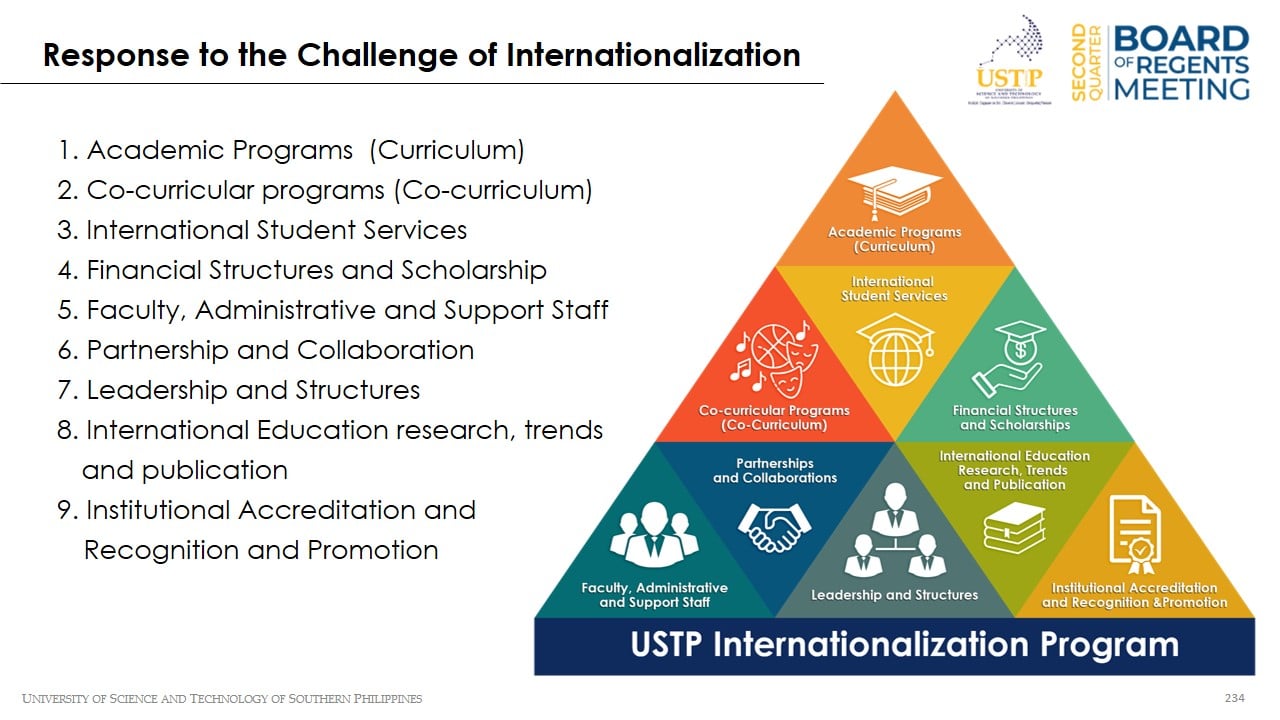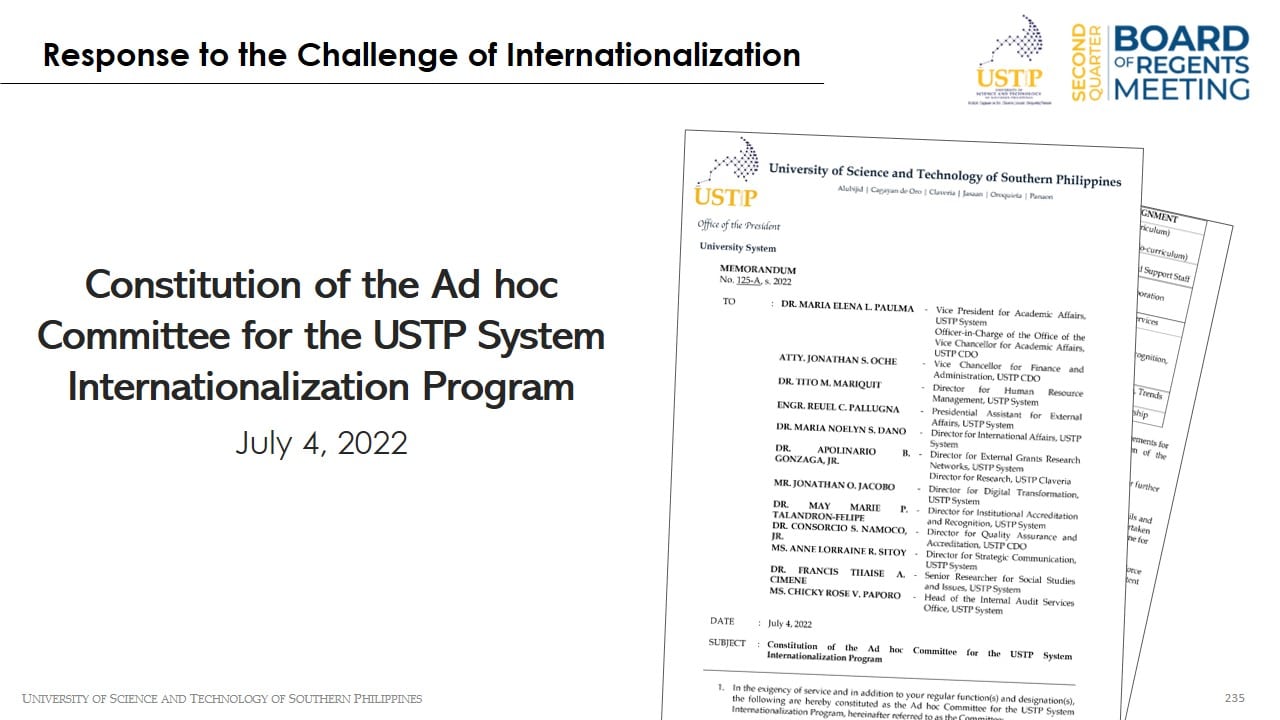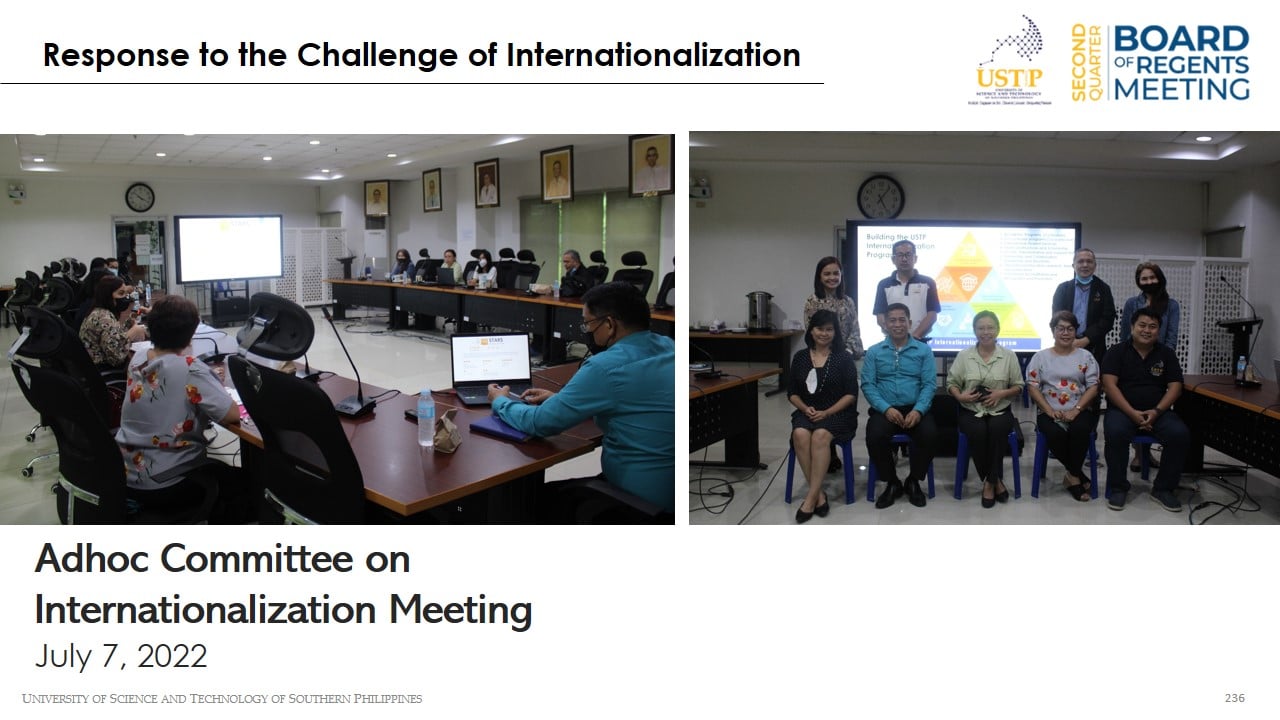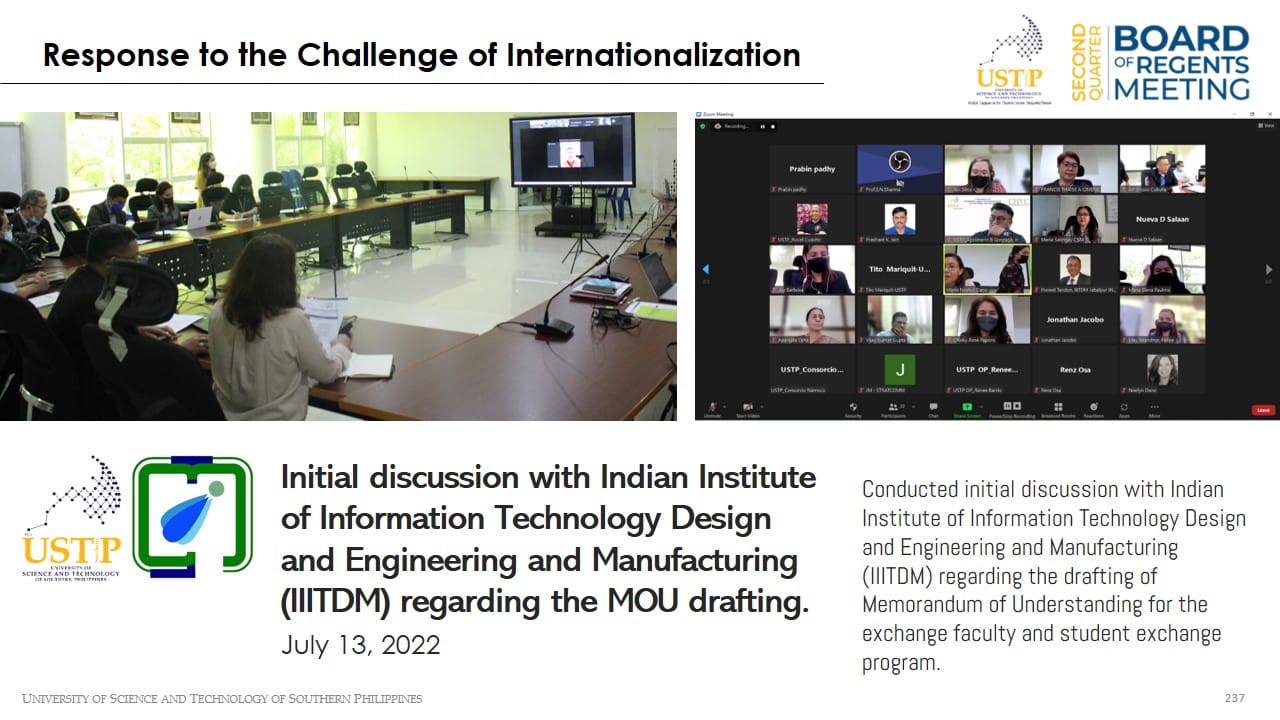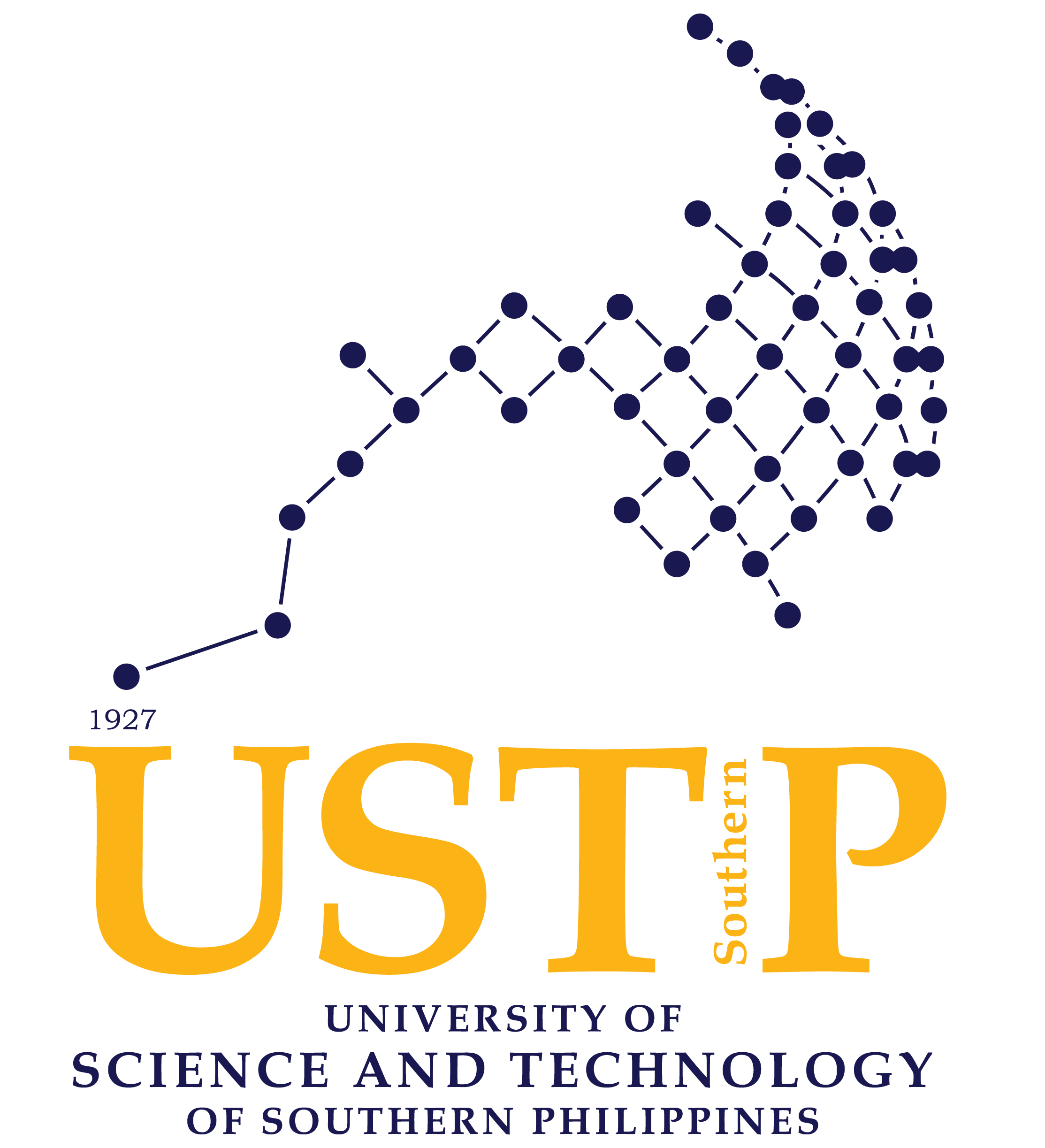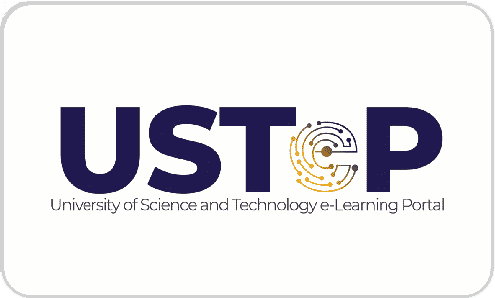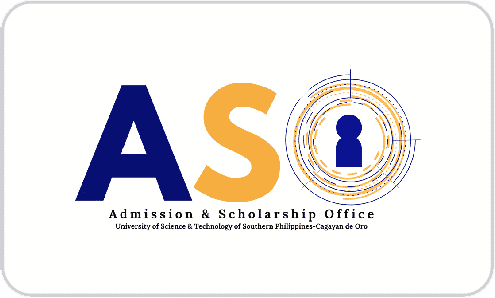The USTP Internationalization Policy
Internalization is defined as “the integration of international/intercultural dimensions to HEIs’ purpose, functions, and/or delivery; it involves a process of interchange of higher education between nations, between national systems of higher education, and between institutions of higher education. It is the expansion of higher learning within and beyond national borders and centers of scholarly studies. Internationalization of higher education is a much broader concept than cross-border education.” (CMO 55, s.2016)
From a global perspective, the following trends mark higher education: education massification/diversification, Outcomes-Based Education/21st Century Skills, increasing international student mobility, ICT in Education, cross-border & transnational higher education, regionalization, and internationalization of higher education.
In light of this, there is a need for a programmatic and holistic approach to developing and implementing a university internationalization strategy instead of one-off, random activities. It seeks to further drive positively and incentivize the good practices, thrusts, and programs on internationalization that delivers on fulfilling sustainable goals not just on education but the 17 other goals stated in SDG 2030.
As stipulated in CMO 55, s.2016, an internationalization strategy in Philippine higher education is warranted by the demands of integration and globalization which the national higher education system alone cannot meet. In the context of integration, students’ learning environment needs to be enhanced, their experiences diversified, and their competencies sharpened so that they can participate meaningfully in regional and global labor markets. These are made possible through expanded forms of educational interfaces that widen their educational experience and mindsets.
Internationalization confers the following intrinsic benefits:
- enriches and diversifies students’ learning experience so that they can be more adaptable to fast -paced changes in a global environment;
- promotes and deepens awareness of social and cultural similarities, and inculcates respect for social and cultural differences;
- generates highly qualified graduates that can compete in the national, regional, and international labor markets;
- serves as a platform for the government and HEIs to participate in the setting of international standards that can help in developing program and curriculum design with an international orientation;
- provides an opportunity for developing and
strengthening academic linkages for collaborative work and exchanges; - promotes academic and knowledge transfers that can enhance the quality of Philippine HEIs over the long-term;
- provides an opportunity for strengthening diplomatic and international economic relations that could deepen awareness of the interdependence of nations; and
- provides an opportunity for knowledge and technology transfer, sharing and broadening of perspectives and experiences of faculty, academic staff, and students through institutional visits, joint research, collaborative academic and cultural activities, and sharing of academic and cultural resources.
International Affairs Updates
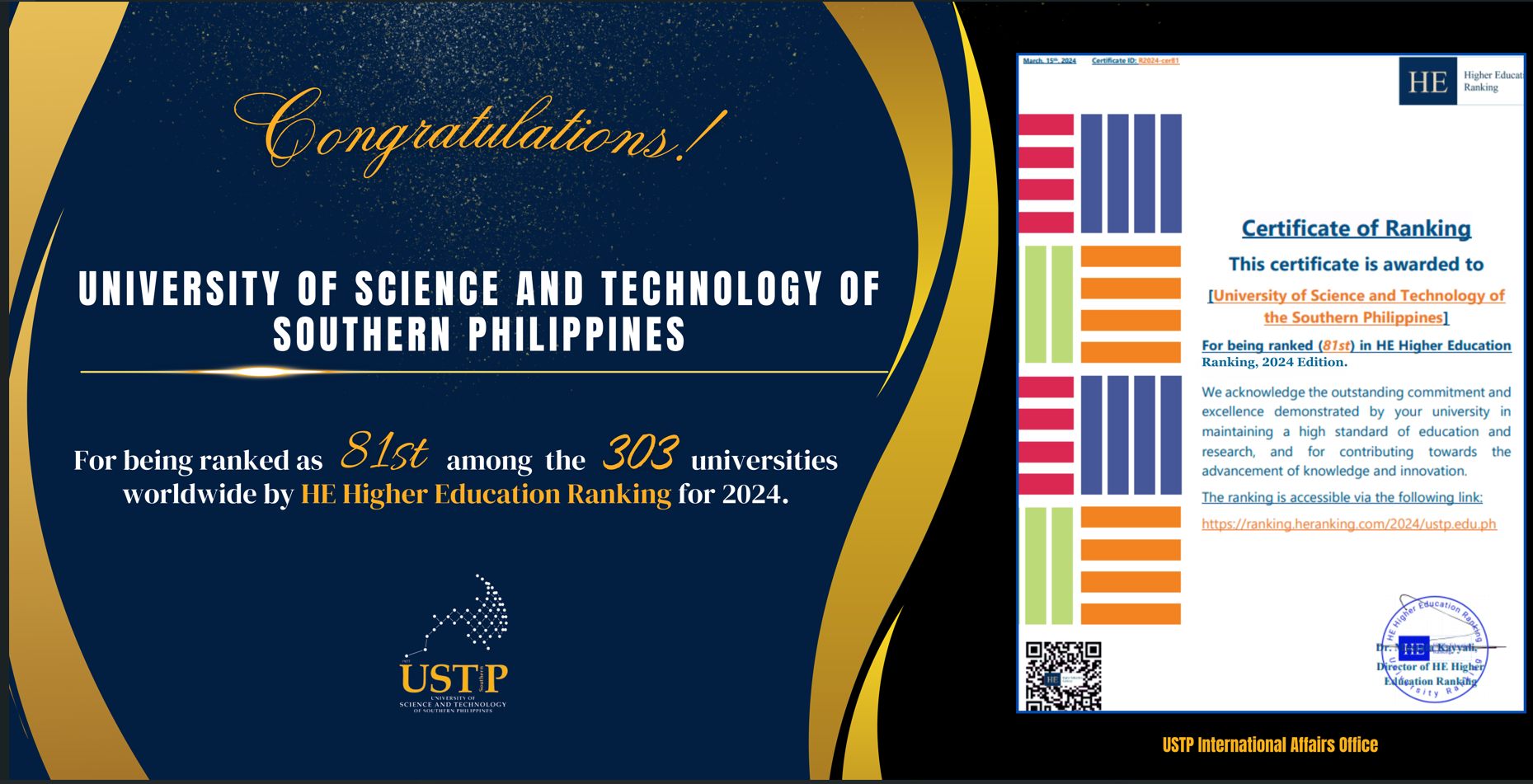
![]()
![]() Celebrating Success: USTP Ranks 81st in HE Higher Education Ranking, 2024 Edition!
Celebrating Success: USTP Ranks 81st in HE Higher Education Ranking, 2024 Edition! ![]()
![]()
The University of Science and Technology of the Southern Philippines has been ranked 81st in the HE Higher Education Ranking, 2024 edition. Out of 303 participating universities, USTP has demonstrated outstanding performance, earning this prestigious achievement.
Two Philippine Universities made it in the top 100 as West Visayas State University – 46th and USTP – 81st.
We extend our heartfelt congratulations to the entire USTP community—our management, staff, students, and alumni—for this momentous accomplishment. The university’s dedication to excellence in higher education has positioned USTP at the forefront of academic excellence, showcasing our commitment to providing quality education and services to our students.
LATEST NEWS!
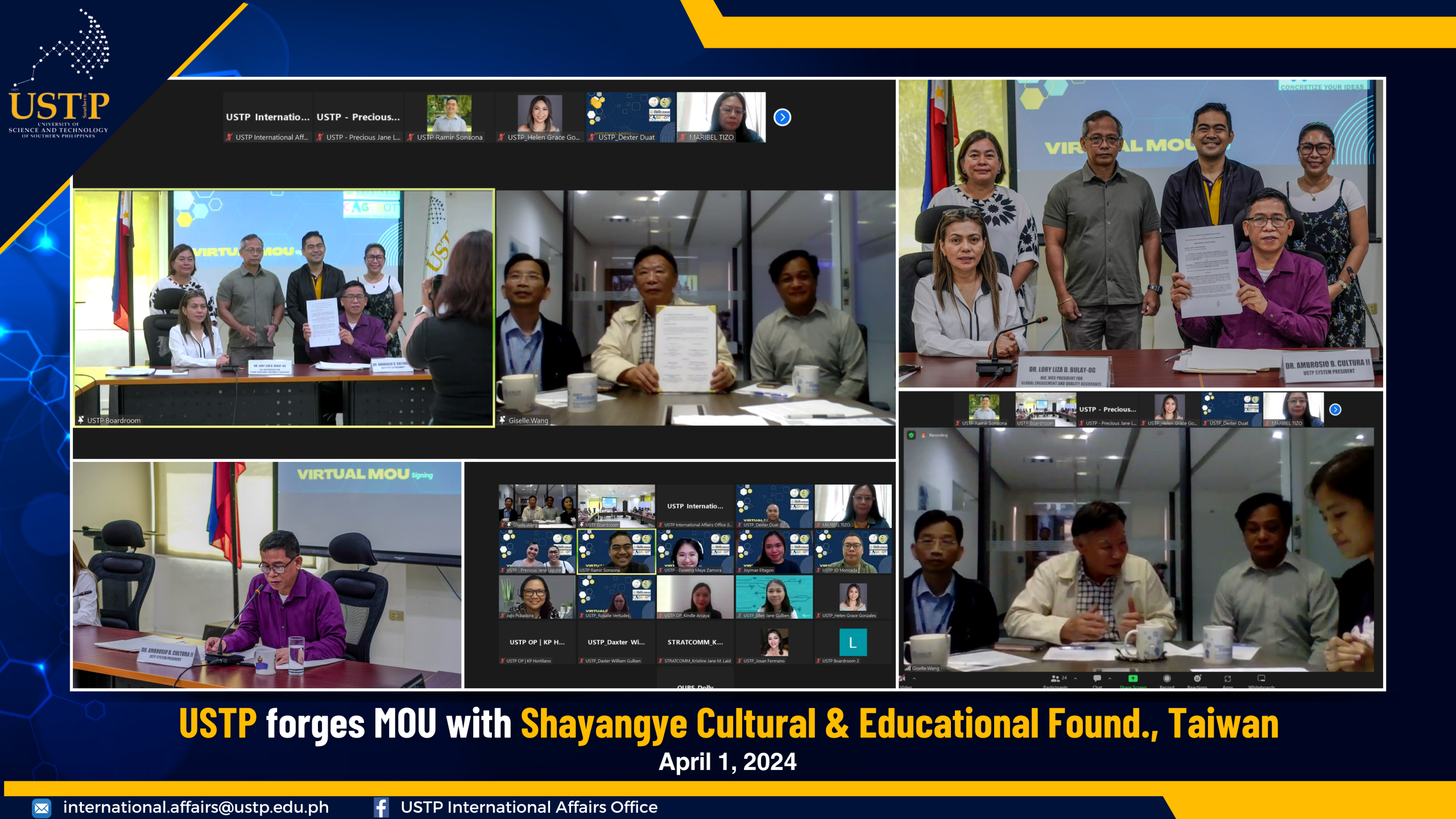
USTP forges MOU with Shayangye Cultural & Cultural Found, Taiwan
by: Helen Grace Gonzales, CIAC, College of Technology & Section Head, Academic Mobility, IAO
University of Science and Technology of Southern Philippines (USTP) formally inked a Memorandum of Understanding (MOU) with Shayangye Cultural & Educational Foundation on April 1, 2024 through virtual platform. This partnership aims to foster academic collaboration and technological advancement.
Part of the MOU includes areas of collaboration, which covers the establishment of Teaching and Promotion Interconnection Bases and participation in educational initiatives and competitions. A significant aspect of the agreement is Shayangye’s provision of CAGEBOT engineering block educational equipment to USTP. This equipment will enhance practical learning experiences for USTP students.
USTP University President Dr. Ambrosio B. Cultura, and the Chairman of Shayangye, Mr. Tsai Fen-Chun expressed their enthusiasm for the collaboration’s potential to drive innovation and academic excellence. The MOU is effective until December 31, 2024. The signing ceremony concluded with optimistic remarks from Ms. Giselle Wang, CEO of Shayangye, and Dr. Ruvel J. Cuasito Sr., Dean, USTP College of Technology.
The MOU signing was facilitated by the USTP International Affairs Office (IAO) and involved key figures from both institutions. Dr Ramir Philip Jones V. Sonsona for the IAO, Dr Loryliza D Bulay-og, OIC VP for Global Affairs and Quality Assurance, Dr Maria Teresa M. Fajardo, Director, Extension and Community Relations, and College/Campus International Affairs Coordinators (CIACs) attended this MOU signing. This MOU marks a significant step towards a mutually beneficial partnership that will shape the future of education and industry collaboration.
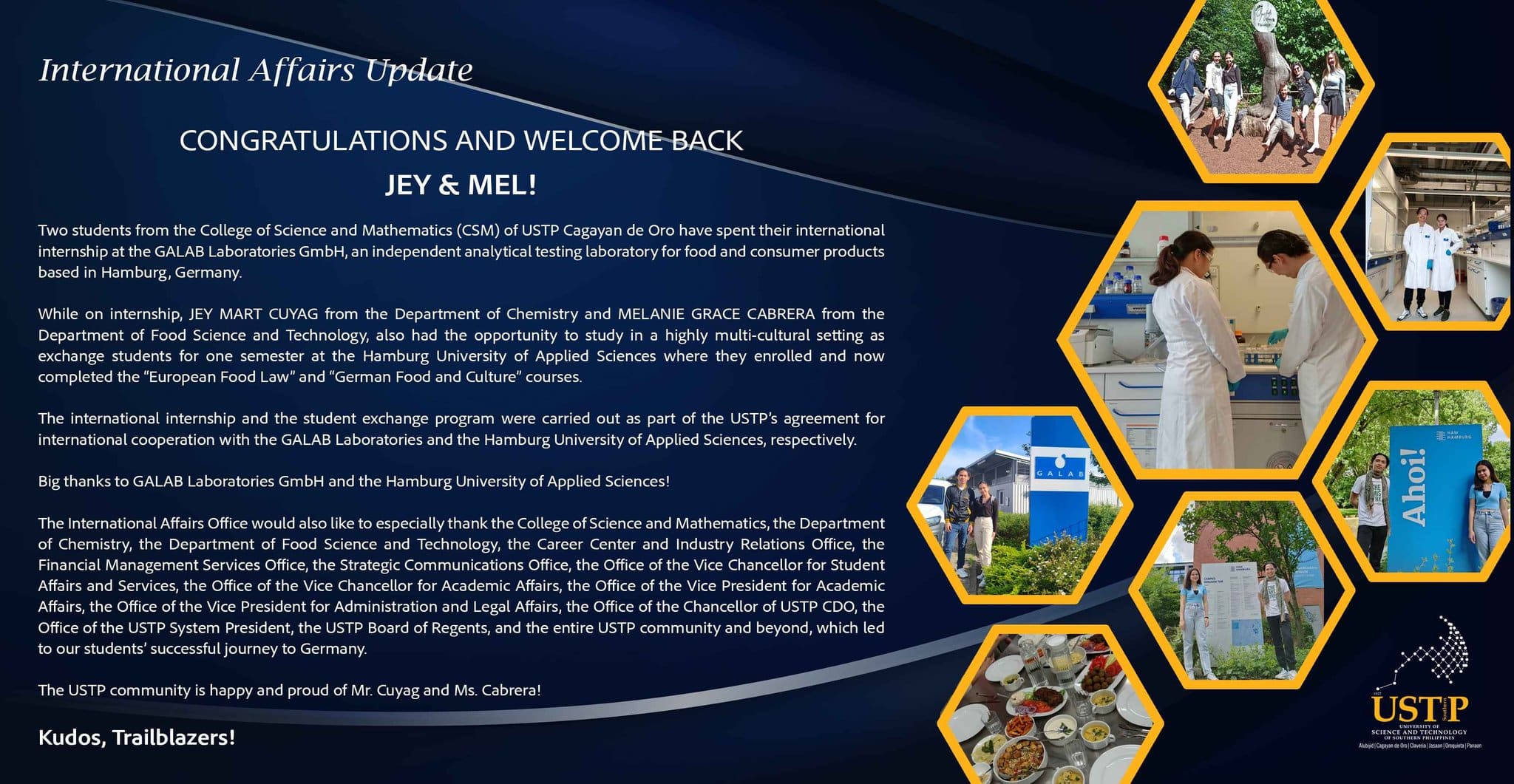
Internationalization Initiatives
